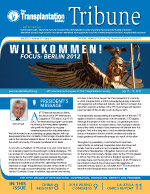Newsletter 2012 Volume 9 - Issue 2
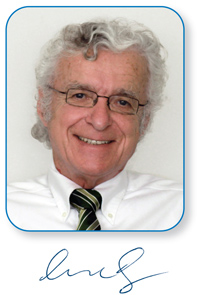
Gerhard Opelz
President
All TTS eyes are focused on Berlin, the venue of the 24th International Congress of TTS held on July 15-19, 2012. The international program committee has lined up first-rate plenary speakers, along with the highest-scoring peer reviewed abstracts for oral presentations. We look forward to an outstanding congress program, with top-level presentations from all fields of clinical organ transplantation as well as the transplant-related sciences. It is a pleasure to welcome the world community of transplant professionals to Berlin.
As my term as President of TTS comes to an end, I look back on two interesting years that have brought multiple challenges. TTS has evolved to a membership of over five thousand, has become recognized as the world’s leading society representing organ transplantation, and is interconnected with many related professional societies and authorities. Upholding the ethical standards of organ transplantation has been at the center of TTS attention through its close relationship with the Declaration of Istanbul Custodian Group. In addition, educational and training activities, international support functions (especially in countries in which transplantation is still in a developing phase), interaction with regulatory authorities and industry, and last but not least, the important scientific activities of the TTS Committees and Sections have rounded off the society’s work during my term.
I have especially enjoyed seeing the development of the new TTS registry initiative in collaboration with the scientific CTS registry. Although this project is still in its infancy, it is gratifying to know that even in the short to medium-terms, many transplant centers around the world in need of documentation will benefit from this program. And in the long-term, a truly worldwide reference source of transplant data for scientific analysis and evidence-based guidance will eventually emerge as a result of this effort.
Throughout my presidency, I was fortunate to have been supported by an extremely cooperative Executive Group and society Council as well as a most competent staff at TTS International Headquarters. Altogether, there is much optimism for the future of this society. Already, plans for the TTS Congresses in 2014 in San Francisco and 2016 in Bangkok are taking on concrete shape, and the long list of activities in which TTS plans to be actively involved in the coming years fills megabytes of computer memory space. I am confident that TTS will continue to serve the world transplantation community well.
TTS would like to thank its members for voting in the recent elections of TTS Officers and Councilors for the term 2012-2014. We are pleased to introduce your new Council.
Congratulations to the newLY elected officers and council members.
New Officers and Councilors
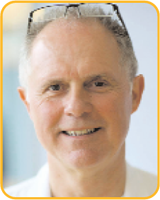 PRESIDENT-ELECT PRESIDENT-ELECTHenrik Ekberg |
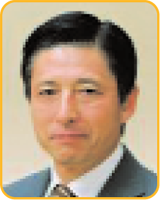 COUNCILOR COUNCILORShiro Takahara (Asia) |
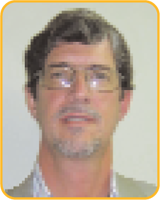 COUNCILOR COUNCILORRudolf Garcia-Gallont (Latin America) |
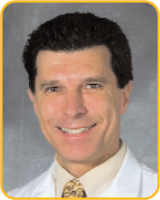 SENIOR TREASURER * SENIOR TREASURER *Marcelo Cantarovich |
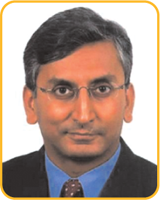 COUNCILOR COUNCILORVivekanand Jha (Asia) |
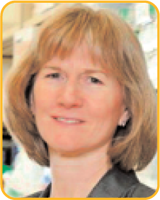 COUNCILOR COUNCILORMegan Sykes (North America) |
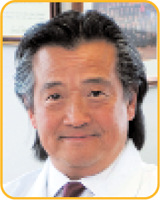 TREASURER TREASURERJohn J. Fung |
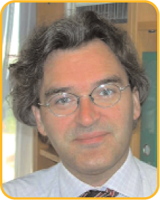 COUNCILOR COUNCILORDirk R. J. Kuypers (Europe) |
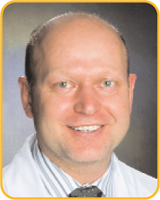 COUNCILOR COUNCILORStefan G. Tullius (North America) |
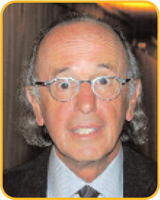 SECRETARY SECRETARYGabriel Danovitch |
Returning Officers and Councilors
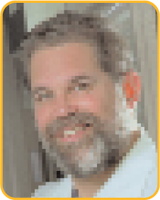 VICE PRESIDENT VICE PRESIDENTRon Shapiro |
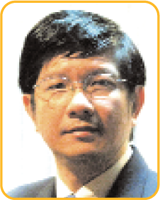 COUNCILOR COUNCILORVasant Sumethkul (Asia) |
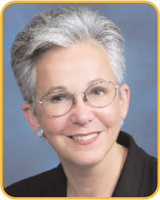 COUNCILOR COUNCILORNancy Ascher (North America) |
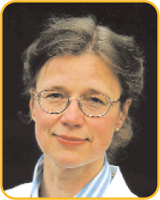 COUNCILOR COUNCILORAnnika Tibell (Europe) |
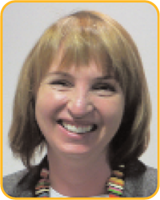 COUNCILOR COUNCILORElmi Muller (Middle East / Africa) |
|
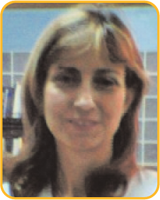 COUNCILOR COUNCILORMaria Cristina Ribeiro de Castro (Latin America) |
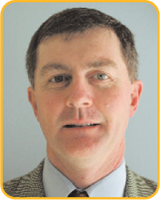 COUNCILOR COUNCILORPhilip O’Connell (Oceania) |
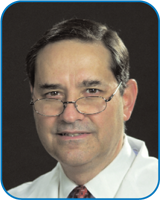
Francis Delmonico
TTS: An Engine of Change
The Transplantation Society has undergone an enormous transformation in recent years. Its membership has increased to over five thousand professionals in nearly one hundred countries with transplantation services around the world. As a non-governmental organization (NGO) of the World Health Organization (WHO) in matters of organ donation and transplantation, TTS has been an effective ally to the WHO, achieving international standards of care that were adopted by the World Health Assembly in May 2010. The charge of the Declaration of Istanbul not only seeks to prohibit organ trafficking, transplant tourism, and transplant commercialism, but also to foster deceased donation and ethically proper practices of live donation throughout the world. TTS support of the Regional Health Development Center (RHDC) of Croatia in establishing deceased donor transplantation throughout Southeastern Europe is an example of that effective interaction. Recently in Montenegro, TTS and the RHDC leaders Dr. Mirela Bušić and Lydia Raley visited ministry officials Dr. Jadranka Lakićević and Dr. Mira Dašić, as well as Mirjana Djuranović, Senior Adviser for International Cooperation, all shown in the adjacent photo.
A well-developed action plan is underway with the alliance of the Ministry of Montenegro and the experienced leadership of Professor Marina Ratković. Key components have been identified that will enhance success—among them, the capacity to determine death by neurologic criteria in the Intensive Care Units of the University Hospital of Montenegro and the engagement and commitment of the Director of the Hospital to assemble a multidisciplinary team to conduct the donation and transplantation program.
TTS is currently entering a period of activity that will be unmatched in its intention to support all jurisdictions in their efforts to expand deceased organ donation.
The principles and proposals that were established in Istanbul in May 2008 have become the cornerstone of the revised WHO Guiding Principles, urging all member states to address their donation and transplantation needs. TTS is currently entering a period of activity that will be unmatched in its intention to support all jurisdictions in their efforts to expand deceased organ donation.
On behalf of the Officers and Councilors of The Transplantation Society, we wish to convey our appreciation to Gerhard for his stewardship of the Society during the past two years and for his continuing role as an Executive of Council in the years ahead.

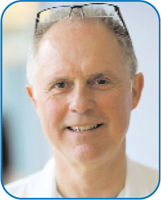
Henrik Ekberg
This issue of Tribune presents several examples of how TTS fulfills its mission.
The TTS Congress in Berlin will be a great networking event full of news of exciting developments in transplantation. While we will be travelling through the old airport, we will be heading for new knowledge. The plans for the 2014 TTS Congress in San Francisco, which will be the second World Transplant Congress in collaboration with the American Society of Transplant Surgeons and the American Society of Transplantation, are well under way (see Berlin is Prepared for the Best in Basic Science and Clinical Transplantation on pages 6 and 7 and Announcing the 2014 World Transplant Congress on page 9.)
Between the 2012 and 2014 Congresses, TTS will have its alternate year program with specialized interest meetings and TTS sections' meetings. These events will gather together physicians and scientists in cell- or xenotransplantation, intestinal, hand and composite tissue, pancreas and islets, as well as specialists in organ donation and transplant infectious disease (see updates from the CTS, IHCTAS, IPITA, ISODP, ITA, IXA and TID sections on pages 10, 13-15.)
TTS is also focusing on supporting colleagues in the forefront of research in Transplantomics and Basic Science (see Transplantomics 2012 La Jolla Conference Report on page 11, and Basic Science Committee Update on page 5.)
TTS membership benefits are very substantial: simply by attending one of our many meetings every two years you will save money, but you may be able to profit even further through the Mentor/Mentee programs of the TTS Basic Science Committee and TTS Women in Transplantation initiatives, as well as TTS Research Exchange Fellowship grants, to name a few opportunities.
If you take a look at www.tts.org you will see not only news of the society, its sections and the affiliated national societies but also a sector dedicated to continued education. All sessions in TTS meetings and congresses are recorded and may be viewed by TTS members at any time. Additionally, all our webinars may be revisited—one of the most recent webinars concerned the teaching and training of junior transplant physicians. This topic was addressed by Dr. Medhat Askar in a webinar format and will be explored again at the Berlin Congress in Room 42 of the ICC Berlin on Thursday, July 19th from 8:00 to 9:00am.
TTS' position on the development of an ethical basis for organ donation and transplantation world-wide is well known. The Declaration of Istanbul (DOI) has now been endorsed by more than 110 organizations and societies in the field. TTS continues its close collaboration with the DOI Custodian Group (please see Declaration of Istanbul Custodian Group Update on page 8.) TTS also supports the China Liver Transplant Registry (CLTR) in its endeavours to increase deceased organ donation (after circulatory or brain death), replacing executed prisoners as donors (see TTS Supports China Liver Transplant Registry Efforts to Align Chinese Practices with International Standards on pages 8 and 9.)
TTS actively supports the intensive work in the South East European Health Network (SEEHN) led by the Regional Health Development Center in Croatia (RHDC) for the past two years (see Macedonia Meeting Highlights in Tribune Vol. 8 Issue 3, Nov. 2011.) Meetings are scheduled in each country (for example in Montenegro, see Incoming President's Remarks, page 3) and in June 2012 a Symposium took place in Zagreb with participation from all Ministers of the countries in the region (see report to come in a future issue of Tribune.)
All sessions in TTS meetings and congresses are recorded and may be viewed by TTS members at any time.
TTS has also continued to support the development of deceased donation in Thailand (see TTS and Thai Societies Launch a Model of Collaboration in Tribune Vol. 8 Issue 1, Apr. 2011), and I participated in a one-day meeting on March 18th with the Thai Transplantation Society in Bangkok under the leadership of Vasant Sumethkul, Councillor of TTS and President of the Thai Transplantation Society. Reimbursement for donor hospitals in Thailand has been accomplished, and trauma centers that are potential centers of excellence in organ donation have been identified. Educational programs for intensive care personnel are also being planned.
Dr. Mehmet Haberal, former TTS Councilor, Founding President of Baskent University, and a Member of the Turkish Parliament, remains in prison without trial in Turkey for more than three years now. TTS Immediate-Past President Jeremy Chapman, past Councillor Josep Lloveras and Dr. Nadey Hakim visited Dr. Haberal in the Silvri Prison outside of Istanbul in April and reports that he is well but disheartened by his long incarceration. Continuing efforts are being made to bring this state of affairs to the attention of governments on both sides of the Atlantic.
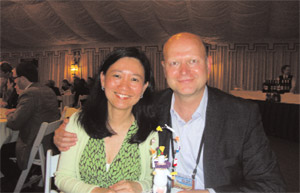
Anita Chong and Stefan Tullius,
Basic Science Committee Co-Chairs
Transplantation has not stopped moving forward and the field remains exciting, largely based on its progress in basic, translational and clinical research. The 2012 Berlin TTS Congress received close to three hundred abstracts in the categories of Immunobiology and Basic Sciences, a record high. The most recent and outstanding research will be presented in seventy-six Oral and Mini-Oral presentations. In addition, leading investigators in their field will present the most cutting-edge advances in basic transplantation research in eight State of the Art and eight Sunrise Symposia, providing the most up-to-date information and ideas for new research directions.
The Basic Science Committee is continuing its collaboration with seven national and regional transplant societies to award up to thirty Mentor/Mentee Travel Awards for the Berlin Congress. We will also be awarding for the first time several TTS—Basic Science Research Exchange Fellowship grants to provide new research opportunities for trainees and established investigators away from their home institutions. Both the mentor/mentee awards and the research exchange fellowships will be awarded during the Basic Science Networking Event on Tuesday, July 17th from 17:30-19:00 at the ICC Berlin in the Oslo Room.
We are awaiting this exciting 2012 TTS Congress, anticipating the excellent basic science presentations and most importantly, looking forward to seeing you at the networking celebration. Berlin is a wonderful, hip, metropolitan place, so we are sure that you will enjoy the city as well.

For the Best in Basic Science and Clinical Transplantation

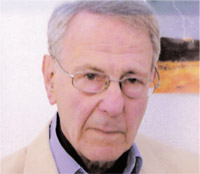
Immunologist Leslie Baruch Brent
will be honored during the
2012 Berlin Congress
Welcome to the 24th International Congress of The Transplantation Society. After many exciting months of congress preparation, we are delighted that you made it to Berlin, one of the most thrilling cities in Europe. Take part in—and be the most important part of—this trend-setting scientific meeting.
The meeting will start with the Postgraduate Weekend on July 14-15, 2012. We are looking forward to discussing current controversial topics in the fields of allocation, surgical procedures and immunosuppression. Concurrent workshops on Saturday will elucidate clinical and immunological issues from concepts of chronic rejection to innate immunity. Sunday's schedule includes a variety of topics presented by outstanding international transplant experts, including "How to make a career in transplantation"—a session that will be of particular interest to young scientists and physicians, and a session with answers and practical tips on the crucial subject of "How to fund research in transplantation."
The Opening Ceremony on Sunday, July 15th will introduce you to the International Congress Centre Berlin (ICC Berlin), one of the largest, most advanced and most successful congress venues in the world. The evening's entertainment, provided by The Berlin Comedian Harmonists will take you back in time to the era of the Golden Twenties. You will not want to miss it!
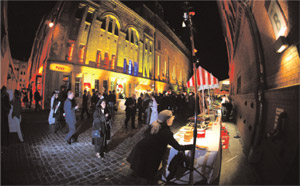
The Kulturbrauerei building, site of the
Congress Gala Event
(Copyright Palais Veranstaltungs GmbH)
You also shouldn't miss the Welcome Reception, which will be held in the Exhibition Hall after the Opening Ceremony. Use this great opportunity to meet your fellow conference attendees, greet long-standing companions, and make new friends.
The main congress will offer a versatile and exciting scientific program spanning disciplines from clinical transplantation to basic science. Worldwide-established experts will present the latest results of their research in twenty-six Sunrise Symposia and thirty-seven State-of-the-Art Symposia, giving a comprehensive overview of the field of transplantation. Extraordinary highlights will be presented in six Plenary Sessions.
More than two thousand abstract submissions have been received for fifty Concurrent Oral Sessions, forty Mini Oral Sessions and an extensive Poster Exhibition. Each poster in the exhibition will be printed on-site and displayed in the traditional printed format. In addition, convenient Poster Lounges will provide electronic poster displays to promote a scientific exchange in a communicative atmosphere. The Mini Oral Sessions will build bridges between conventional poster presentations and full oral presentations.
The President's Plenary on Wednesday, July 18th will feature the 2008 Nobel Prize Laureate Harald zur Hausen, who discovered the role of the human papillomavirus in the development of cervical cancer. Professor zur Hausen will give an outstanding presentation on oncogenic viruses.
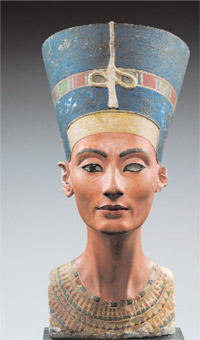
The famous bust of Queen Nefertiti
will be on display at the Neues Museum
during a special viewing
for Congress delegates
(Büste der Königin Nofretete,
Neues eich, 18. Dynastie
Amarna-Zeit um 1340 v. Chr,
Kalkstein und Gips,
© Staatliche Museen zu Berlin,
Ägyptisches Museum
und Papyrussammlung,
Foto: Jürgen Liepe)
TTS President Gerhard Opelz will give his presidential address prior to honoring the awardees of the Young Investigator Awards, the Recognition Awards, and the Medawar Prize.
A special homage will be paid to Leslie Baruch Brent. Leslie Brent, born in Köslin, Germany (now Koszalin, Poland) escaped the Holocaust and is one of the co-discoverers of acquired immunological tolerance.
The Cultural Evening will be very special: On Tuesday, July 17th, the UNESCO World Heritage site Museumsinsel (Museum Island) will open the doors of two of its most interesting museums for TTS Congress delegates only. The first will be the Neues Museum (New Museum), an institution with a history as rich as the Museumsinsel itself. Having been closed for almost seven decades, it was finally revived by the British architect David Chipperfield, who succeeded in uniting the structure's old glory with modern elements. The museum is home to one of the world's most important collections of Ancient Egyptian artifacts, including one of the most graceful pieces of art worldwide: the bust of Queen Nefertiti. The second museum that will be open for TTS delegates only is the Pergamon Museum, one of Germany's most successful art museums. It houses some of the most impressive original-sized monumental buildings of the Middle East, among them the Pergamon Altar.
The Gala Event at the Kulturbrauerei will be held on Wednesday, July 18th. Nothing could be a better venue for a social evening than this former brewery building where diverse artists from Berlin will attract, entertain and animate Congress guests. Musical delights will range from traditional popular dance tunes from the roaring 20s, 30s and 40s by the Capital Dance Orchestra, to alternative dance music, to a classy swing band to drum beats. The participants will be able to explore the many different rooms and courtyards of the venue while they sample culinary offerings representing the countless nations that find a second home in Berlin: from kebab to sushi to falafel to sausage.
Once again, on behalf of The Transplantation Society and the Deutsche Transplantationsgesellschaft, we welcome you to Berlin and to the 24th International Congress!

2012 MEDAWAR PRIZE
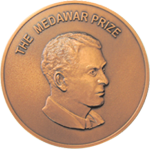
The Medawar Prize recognizes the world's most outstanding contributions in the field of transplantation. It is funded from a generous endowment by Novartis Pharma AG to The Transplantation Society (TTS). The 2012 Medawar Prize recipient will be announced at the TTS Presidential Plenary and added to an illustrious group of 27 previous Medawar Laureates.
2012 TTS RECOGNITION AWARDS
Recipients of the 2012 TTS Recognition Awards will be announced at the TTS Presidential Plenary.
- • TTS-Asturias Award for International Cooperation
- • TTS-Genzyme Award for Education and Training in Transplantation
- • TTS-Genzyme Award for Innovation in Surgery and Technology
- • TTS-Novartis Award for Outstanding Contribution to the Evidence Base for Transplantation
- • TTS-Novartis Award for Outstanding Investigator Driven Clinical Trial
- • TTS-Roche Award for Outstanding Achievement in Transplantation (Basic)
- • TTS-Roche Award for Outstanding Achievement in Transplantation (Clinical)
- • TTS-Roche Award for Excellence in Translational Science
- • TTS-Roche Award for Transplant Infectious Disease
- • TTS-Roche Award for Worldwide Impact in Transplantation
2012 TTS YOUNG INVESTIGATOR AWARDS
Ten TTS Young Investigator Awards will be presented to TTS Members with the highest scoring abstracts during the Berlin Congress. These awards will be presented during the TTS Presidential Plenary.


Participants of the national assembly convened in Hangzhou, China in March 2012
The China Liver Transplant Registry (CLTR) is underway in establishing much needed changes in China. Representatives of TTS (Francis Delmonico and John Fung) recently participated in a national assembly sponsored by the Ministry of Health and the Red Cross of China, convened in Hangzhou in March 2012. An invited keynote presentation was made by Dr. Delmonico on behalf of TTS, endorsing the efforts of the CLTR to achieve a transparency of registry events, develop an equitable system of organ allocation, and develop an ethically proper program of deceased donation as an alternative to the use of organs from executed prisoners. TTS commends the leadership of Dr. Haibo Wang in accomplishing these objectives, which are consistent with the Declaration of Istanbul's principles and the Resolution of the 63rd World Health Assembly of 2010.
Transparency:
The World Health Organization (WHO) has stated clearly in its Revised Guiding Principles that "donation and transplantation activities, as well as their clinical results, must be transparent and open to scrutiny, while ensuring that the personal anonymity and privacy of donors and recipients are always protected." The CLTR has an opportunity to make data transparent by an annual release of information, revealing a reduction in the practice of liver transplantation from executed prisoners. TTS supports this annual report of data from the CLTR, maintaining its position expressed in the following policy statement:
The need for transparency and for assembling comprehensive demographic data on the international practice of transplantation dictates that these data should be accepted. The source of the organ or tissue should be clearly identified and recorded as procured from an executed prisoner. Such data should not be incorporated in the total analysis of outcomes of transplantation or other scientific registry studies.
Allocation of organs:
Drs. Haibo Wang and Sheung Tat Fan have developed an objective ranking index of medical criteria for organ allocation in China to include disease severity, donor recipient age matching, blood type and HLA matching, and waiting time of the candidate. To encourage organ donation, ranking priority is also granted to those who are living donors or any of the immediate family members of a deceased donor. This direction fulfills international standards set forth by the World Health Organization that "the allocation of organs, cells and tissues should be guided by clinical criteria and ethical norms, and not financial or other considerations. Allocation rules, defined by appropriately constituted committees, should be equitable, externally justified, and transparent." The WHO has also suggested that there be Ministerial and public oversight of updated comprehensive reports regarding the system of organ allocation in order to verify equitability and transparency.
The proposed geographic distribution of organs within China is initially to the transplant center within the organ procurement organization, then to other regional transplant centers within the Province, and then finally to a national list.
New protocol for deceased donation:
The CLTR has been a leader in the development of a new program of deceased donation noteworthy for its ethical propriety and consistent with international standards. It entails the determination of death by neurologic criteria. Even though brain death is not yet legally recognized in China, the plan is to facilitate organ donation when brain death is recognized in the intensive care units. Futile support will be withdrawn from such patients after consultation with the family who derives consent for organ donation. Minister Jie-Fu Huang has termed this program "deceased donation with China characteristics." TTS endorses the implementation of this program throughout China as the alternative to the use of organs from executed prisoners.

The June issue of Nature Reviews Nephrology includes a detailed review (Published online: 20 March 2012 | doi:10.1038/nrneph.2012.59) of major international developments since the initial meeting of the Declaration of Istanbul on Organ Trafficking and Transplant Tourism in April 2008. As this review describes, there has been substantive positive change in the organ transplant environment of several of the countries designated by the WHO as "hotspots" of trafficking and tourism.
 Despite these encouraging developments, intractable problems remain. The Custodian Group (DICG) of the Declaration met most recently at the ISODP meeting in Buenos Aires to formulate future plans to be addressed through the activities of its Task Forces and in cooperation with the multiple professional societies and governmental agencies that have endorsed the Declaration. The Declaration has been used as a resource on several occasions by governmental agencies dealing with cases of tourism and trafficking. For the first time, it has become part of national transplant legislation in the new Brazilian transplant law.
Despite these encouraging developments, intractable problems remain. The Custodian Group (DICG) of the Declaration met most recently at the ISODP meeting in Buenos Aires to formulate future plans to be addressed through the activities of its Task Forces and in cooperation with the multiple professional societies and governmental agencies that have endorsed the Declaration. The Declaration has been used as a resource on several occasions by governmental agencies dealing with cases of tourism and trafficking. For the first time, it has become part of national transplant legislation in the new Brazilian transplant law.
At the Berlin TTS meeting, a special Declaration of Istanbul Public Session on Monday, July 16th from 7:00-8:15am in Hall 6 of the ICC Convention Center will be devoted to the Declaration and DICG members will update attendees on developments in key countries that have been both "importers" and "exporters" of transplant tourists. Plans are also underway for a fifth anniversary meeting of the Declaration of Istanbul in 2013.
To keep updated on the activities of the DICG, please visit the TTS booth at the Congress in Berlin as well as the Declaration's website: www.declarationofistanbul.org. Feel free to approach the website editors, Vivek Jha and Gabriel Danovitch with any material that may be relevant to the site. You may contact them at This email address is being protected from spambots. You need JavaScript enabled to view it..
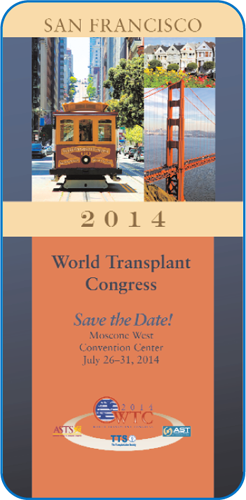
Save the Dates: July 26-31, 2014!
In 2006, the largest international conference in the field of organ transplantation was held in Boston, Massachusetts, designated as The World Transplant Congress (WTC). This historic meeting was the result of collaboration among The Transplantation Society, the American Society of Transplant Surgeons, and the American Society of Transplantation. Attendance reached a record high of over 6,500 participants as well as an additional 1,000 exhibit personnel.
The success of the 2006 WTC has propelled the three societies to join together again in developing another special event—they have selected San Francisco, California as the venue for the next WTC. The 2014 WTC is anticipated to be the largest and most comprehensive meeting of its kind.
As a venue, San Francisco is one of the top tourist destinations in the world, renowned for its cool summer temperatures, steep rolling hills, and eclectic mix of architecture, as well as its famous landmarks, including the Golden Gate Bridge, cable cars, and Chinatown. The city is also a principal banking and finance center, and home to more than thirty international financial institutions, helping San Francisco rank as one of the world's top producing cities and global financial centers. In addition to the many landmarks and well-known heights and sights, be sure to make time for the city's maritime heart—its waterfront, much of which has been refurbished.
When planning your attendance at the 2014 WTC, consider adding time to do a pre- or post-excursion to San Francisco's famous wine country, Sonoma or Napa valley. There will be information available regarding tours as the meeting gets closer.
The Program Committee, chaired by Barbara Murphy, will offer a wide range of learning opportunities, including basic science and clinical symposia. A record number of presentations is anticipated for 2014 WTC, recalling that the 2006 WTC received over four thousand abstract submissions.
Again, please save the dates and plan to attend the World Transplant Congress on July 26-31, 2014, and be a part of transplant history.
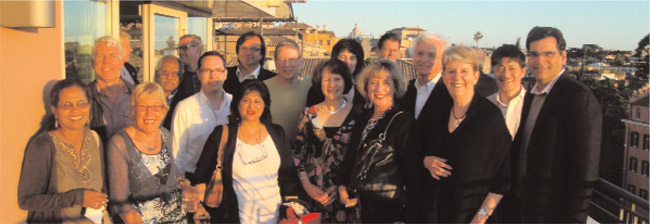
Participants of the Working Groups met in Rome in May 2012
The detection and relevance of HLA antibodies in clinical transplantation was the topic of a meeting held in Rome on May 3-4, 2012. Sponsored by TTS and organized under the leadership of TTS President Gerhard Opelz, together with co-chairs Elaine Reed (Los Angeles) and Frans Claas (Leiden), experts from around the world met for discussion of this highly controversial topic. There were three working groups devoted to technology (chaired by Brian Tait, Melbourne, and Andrea Zachary, Baltimore), pre-transplant testing (chaired by Caner Süsal, Heidelberg) and post-transplant testing (chaired by Peter Nickerson, Winnipeg, and Howard Gebel, Atlanta). Members were: Robert Bray (Atlanta), Patricia Campbell (Edmonton) Jeremy Chapman (Sydney), Toby Coates (Adelaide), Robert Colvin (Boston), Emanuele Cozzi (Padova), Ilias Doxiadis (Leiden), Susan Fuggle (Oxford), John Gill (Vancouver), Denis Glotz (Paris), Suchitra Holgersson (Göteborg), Nils Lachmann (Berlin), Thalachallour Mohanakumar (St. Louis), Nicole Suciu-Foca (New York), Kazunari Tanabe (Tokyo), Craig Taylor (Cambridge), Dolly Tyan (Stanford), and Adriana Zeevi (Pittsburgh).
Preparations for the meeting via telephone conferences and email exchanges had been ongoing for six months prior to the meeting, such that the arguments and opinions were well-known to all when the group convened in Rome for this final conference. The meeting turned out to be exceptionally productive. Although there were differences in approaches to clinical testing, particularly between the United States and Europe, sound reasoning prevailed throughout the two-day deliberations.
Rounding off the program, issues such as non-HLA antibodies as well as testing for non-renal organ transplants were discussed. While it was impossible to obtain complete uniformity for test recommendations worldwide, acceptable approaches for suitable testing methodology, pre- and post-transplant testing schedules, and the interpretation of results were identified and agreed upon. Guidelines for antibody testing in clinical organ transplantations are currently being finalized for publication. All participants agreed that the consensus conference was timely and most useful and they greatly appreciated the support provided by TTS, which made this entire project possible. Additional travel support was provided by the Canadian Red Cross, the European Federation for Immunogenetics (EFI), the British Society for Histocompatibility and Immunogenetics (BSHI), and the German Society for Immunogenetics (DGI).
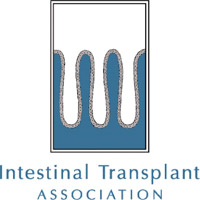
The XIII International Small Bowel Transplant Symposium, chaired by Professor Peter Friend, will be held in Oxford, UK from June 26-29, 2013. The organizing and scientific committees are currently in the process of finalizing the scientific and social programs. State-of-the-art lectures and debates with roundtable discussions will be the theme of the scientific program. With Oxford's rich cultural history, the social program will be full of exciting tours exploring the different historic and scenic views of the city. For symposium updates, please visit www.isbts2013.org.
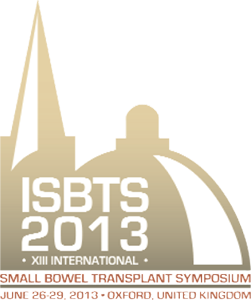 Dr. Kareem Abu-Elmagd, current President of ITA, along with the ITA Council, is in the process of updating the association's current by-laws to allow Allied Health members to be full voting members with other well-deserved privileges.
Dr. Kareem Abu-Elmagd, current President of ITA, along with the ITA Council, is in the process of updating the association's current by-laws to allow Allied Health members to be full voting members with other well-deserved privileges.
In addition, the Association, along with the UNOS liver-intestinal committee, was able to change the current organ allocation policy in the United States to better serve short bowel syndrome patients with intestinal and liver failure. With the new policy, the candidates who have a MELD score of 29 or higher will have access to the national donor pool, which will hopefully reduce the observed high mortality rate of wait-listed patients.
In current scientific activity news, the 2011 ITR report that was presented at the XII International Small Bowel Transplant Symposium in Washington, DC is currently being published. With the primary authorship of Dr. David Grant, the report declared significant increase in intestinal transplant activities on most continents, with improved early patient and graft survival.
The third "Transplantomics" meeting on functional genomics, genetics, proteomics, microbiomics and biomarker discoveries in transplantation.
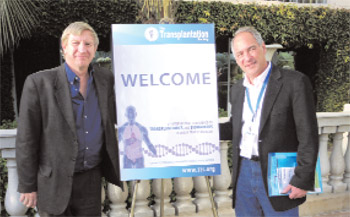
Jeremy Chapman, TTS Immediate Past President
and Daniel R. Salomon, Chair
Held in La Jolla, California on March 8-10, 2012 and hosted by TTS and Program Chair Daniel Salomon of The Scripps Research Institute, the Transplantomics conference opened with the challenges confronting transplantation that "omics" may resolve: better understanding of the mechanisms of chronic graft loss, and minimally invasive biomarkers to personalize immunosuppressive therapy and predicted outcomes. Five "state of the art" lectures covered biopsy expression profiling (Philip Halloran), peripheral blood gene expression for acute rejection in kidney and heart transplantation (Bruce McManus), quantitative PCR profiling of urine in kidney transplants (Manikkam Suthanthiran), profiling tolerance in liver and kidney transplants (Alberto Sanchez-Fueyo) and advancing our understanding of chronic allograft injury (Mark Stegall).
The second day provided sessions on genetics, proteomics, epigenetics and microbiomics, and finally, molecular HLA typing and metabolomics. The complexities of genome-wide association studies (GWAS) to correlate individual single-nucleotide polymorphism (SNP) variations to chronic kidney transplant rejection were apparent and despite several thousand patient samples it is clear that GWAS will be valuable, but may not provide the level of genetic insight originally anticipated. Pharmacogenetics and exome-wide sequencing of patients with chronic rejection were considered. Exome sequencing provides single base detail for the protein coding sequences of the entire human genome in each individual—it was interesting to hear whole genome sequencing including the other 99% of the human genome whose function is not entirely clear.
A fascinating paired discussion of the cutting edges of the Proteome field was held that involved either starting with peptides (bottom-up) or proteins (top-down) and in the end constructing complementary pictures of proteins and the critical modifications that determine functions. The Human Proteome Project was described as designed to determine the proteomics of every known human gene. Finally, a novel approach to quantitative proteomics using multi-parameter flow cytometry was described, allowing a whole new approach to clinical diagnostics for transplant rejection and immunosuppression monitoring.
Dan Salomon described strategies developed to profile the immune-epigenomics of naïve and memory T cells at the level of methylating individual CpG sequences in gene promoter regions, while John Iacomini reviewed the master regulatory functions of small noncoding RNAs (microRNAs), emphasizing how epigenetics modifies the flow of information from the fixed sequences of genomic DNA, adding a complex layer of cell regulation. Microbiomics opened a discussion of the way microbes are synergistically associated with human beings and involved in health and disease beyond antibiotic associated diarrhea.
Henry Erlich reviewed an entirely new layer of genetic complexity revealed by molecular HLA typing using deep DNA sequencing. Metabolomics of plasma and urine were presented as methods to develop diagnostic signatures for transplant rejection, tissue injury and function and the Human Metabolome Project was highlighted—the "GenBank of metabolomics." Bioinformatics approaches were elucidated for network mapping using Cytoscape and for making sense of DNA sequencing at the whole exome and whole genome levels. Latest advances in high resolution digital imaging of biopsy histology to create objective and quantitative metrics for transplant pathology showed how we may expect to read and interpret histology in the future.
Allan Kirk described how the immune response evolves from childhood to old age and related this to the challenges of immune-senescence in transplantation. Dan Salomon proposed an integrated view of inflammation as a central driving mechanism of health and disease. We concluded by trying to understand the "value proposition" of diagnostic and predictive biomarkers for clinical transplantation—the next generation of clinical studies of biomarkers and drug therapies must integrate the new discipline of patient-centered, outcomes-based research before we may anticipate persuading anyone to pay.
The 4th International Transplantomics Conference will be held in Cambridge, England in April 2013. Put it in your diary now! Change in our field will be driven by the evolution and application of new technologies—we are just at the beginning.
4th International Conference on
Transplantomics and Biomarkers in
Organ Transplantation
Cambridge, UK | April 4-7, 2013
www.tts-transplantomics.org

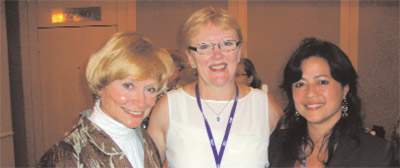
Sharon Hunt, Stanford University Medical School;
Lori West, ISHLT President; and Sandi See Tai, Pfizer
A Women in Transplantation networking event was held in Prague on April 19, 2012 at the 32nd annual scientific meeting of the International Society of Heart and Lung Transplantation (ISHLT). ISHLT President Dr. Lori West introduced invited speaker Dr. Sharon Hunt, Professor of Medicine at Stanford University Medical School and recipient of the 2012 ISHLT Lifetime Achievement Award. Dr. Hunt gave a presentation on her remarkable career, which covered an unparalleled period of advancement in heart transplantation at Stanford University. Especially interesting and enlightening were her reminiscences of women in medicine in the 1970s. She was a member of the first group of women admitted to medical training at Stanford University Medical School, and her talk included photographic evidence of her time there, mini-skirts and all! Dr. Hunt is widely known for her inspirational mentorship of clinical trainees, especially women, in heart failure and transplantation, so her address at the WIT event was particularly fitting. Over 70 attendees from all levels of training and career stages had the opportunity not only to listen to a moving talk from Dr. Hunt but also to develop and renew important networking contacts. As with previous events by the hugely successful WIT initiative, the atmosphere was friendly and relaxed, and provided an encouragingly welcoming atmosphere for young women and new members. We are again thankful to Pfizer for their continuing support of the WIT initiative.
Berlin Congress WIT Events:
|
Monday, July 16th |
WIT Networking Event (lunch) • Noon-13:30 • ICC Berlin (Oslo Room) |
| Elmi Muller | Do You Treat Rottweilers or Poodles? |
|
Tuesday, July 17th |
Sunrise Symposia • 07:00-08:15 • ICC Berlin (Hall 6) |
| Regine Papp-Engels, Germany | A perspective on Female Medical Professionals in the Developed World |
| Delawir Kahn, South Africa | Feminizaton in Medicine as a General Trend and the Implications for the Workplace |
| Beatriz Dominguez-Gil, Spain | Perspective of a Female Professional: Important Factors in Becoming a Female Professional |
|
Wednesday, July 18th |
Concurrent Oral Presentations • 15:30-17:00 • ICC Berlin (Hall 6) |
| Sabine Wohlke, Germany | Gender Differences in Living Organ Recipients' Conceptions of the Body— Medical Anthropological and Ethical Perspectives |
| Sven Pischke, Germany | Outcome of Pregnancies after Liver or Kidney Transplantation |
| Mitra Mahdavi-Mazdeh, Iran | Share of Females in Nephrology of Iran |
| Hagai Boaz, Israel | The Gender Gap in Israeli Living Kidney Donations |
| Maren Schulze, Germany | Training Female Transplant Surgeons in Germany— Mandatory Changes Due to Gender Distribution of Medical Students— How Will the System Cope? |
| Chi-Chua Yeh, Republic of China | Female Transplant Surgeons in Taiwan |
| Charlotte Hauser, Germany | Outcome after Allogenic Kidney Transplantation Distributed by Gender of the Surgeon— A Retrospective Single Centre Analysis |
| Heba Abdelrazik, Egypt | The Egyptian Revolution and Its Impact on An Egyptian Female Doctor Living Abroad for Seven Years |
| Sommer Gentry, USA | Sommer Gentry, USA |
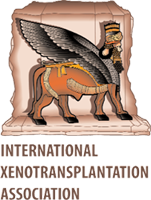
We are pleased to announce that the 12th International Xenotransplantation Association Congress (IXA 2013 Osaka) will be held on November 10-13, 2013 at the Osaka International Convention Center in Osaka, Japan. We have co-organized a special Clinical/Basic symposium on ABO incompatible/hyper-immune transplantation. This joint forum will be of special interest for transplant surgeons, physicians and scientists and will promote discussion of strategies for addressing antibody-mediated rejection and organ shortages: the two major obstacles in clinical transplantation. More specifically, the hot topics in the program will include:
- • How can we overcome immunoresponses associated with presensitization?
- • Update on preclinical organ and cell xenotransplantation
- • Are we ready for clinical islet xenotransplantation?
- • Advanced genetic engineering
- • Zoonosis
In addition, we will also discuss potential uses of "Xeno" and "Regenerative" technologies to resolve the organ shortage.
Osaka is the capital city of the western province of Japan, located an hour's drive from the traditional old cities of Kyoto & Nara. We look forward to meeting and welcoming the international delegates to this thriving urban city surrounded by beautiful historic sites.


The Council of the International Pancreas and Islet Transplant Association (IPITA) continues to work hard to implement the various suggestions outlined at our Council retreat last summer. Our overall aim is to ensure that IPITA's activities include more than just the Biannual Congress, and that we truly represent the whole pancreas and islet transplant community worldwide. Membership numbers have increased over recent months, and we continue to look at new initiatives that ensure that IPITA membership offers real value for those who join. Our Congresses do remain a major priority, and Peter Stock is making excellent progress with preparations for the 2013 IPITA Congress, which is being held in Monterey, California from September 24-27, 2013 (for further information please visit www.ipita2013.org).
We are pleased to announce that the 2015 Congress will be a joint meeting between IPITA, the International Xenotransplantation Association (IXA), and the Cell Transplant Society (CTS). After consultation with the Councils and memberships of the three Sections, Melbourne, Australia has been selected as the venue for this landmark meeting. In the meantime, we look forward to catching up with IPITA members at the TTS Congress in Berlin, and always welcome constructive suggestions about new initiatives that can make our organization stronger. Please don't hesitate to contact IPITA President Paul Johnson at This email address is being protected from spambots. You need JavaScript enabled to view it.
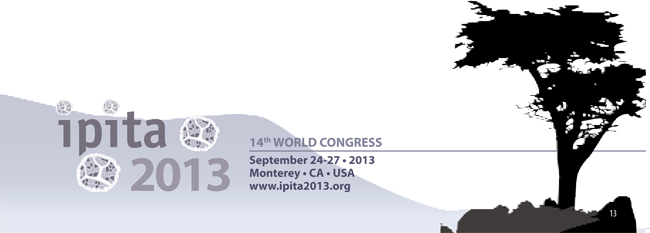
Cell Transplant Society members:
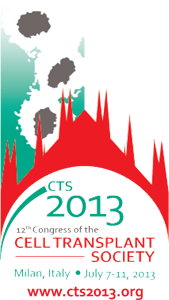
It is an in-between year for us in the Cell Transplant Society (CTS)—we remember the great success of the 2011 meeting in Miami and look forward to seeing all of the CTS members at the 2013 meeting in Milan. We have not yet established the program for the Milan meeting, so suggestions are welcome. They can be sent to This email address is being protected from spambots. You need JavaScript enabled to view it. or directly to Stephen Strom at This email address is being protected from spambots. You need JavaScript enabled to view it..
We hope to build on our history at CTS of timely and informative sessions at this meeting, so member input is not only welcome but expected. Thank you for supporting this year's TTS meeting in Berlin and see you all next year in Milan. Don't miss visiting Da Vinci's famous painting of the Last Supper at the monastery of Santa Maria delle Grazie during your time in Milan—you should book well in advance.

da Vinci’s The Last Supper
IHCTAS Calling
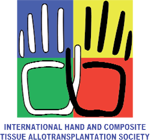
It is a great pleasure to invite you to the XI Meeting of the International Hand and Composite Tissue Allotransplantation Society (IHCTAS) from August 29-31, 2013 in Wroclaw, Poland. Following the successful meeting in Atlanta, we would like to welcome you to the largest city in Poland, situated on the Odra River. Wroclaw has been known as a center for culture and academia for many centuries and was selected as a European Capital of Culture for 2016. During its more than one thousand years of history, Wroclaw has been part of either Poland, Bohemia, Austria, Prussia, or Germany, which has greatly influenced the varied architecture and culture of this capital of Lower Silesia.
The XI Meeting is designed for physicians, surgeons, nurses, organ procurement specialists, scientists and trainees who are interested in Composite Tissue Allotransplantation (a.k.a. Vascularized Composite Allotransplantation (VCA)). The meeting will include plenary sessions, workshops and abstract presentations, providing an overview of current developments and new perspectives. The program is developed to encourage the exchange of novel scientific and clinical information and support the interchange of issues surrounding VCA. For more information, please visit our website at www.ihctas2013.pl
We look forward to seeing you in Poland in 2013!

TID 6th International Conference
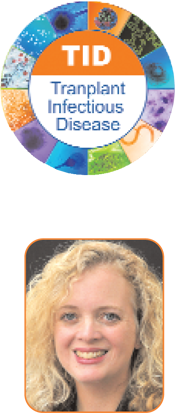
Camille N. Kotton
Chair
The Transplant Infectious Disease (TID) section of The Transplantation Society (TTS) will hold its 6th International Transplant Infectious Disease Conference, in Berlin, Germany, on July 15, 2012, just before the start of the TTS meeting. We have an exciting array of speakers from all over the world, all experts in their field, discussing cutting-edge topics in transplant infectious disease. The meeting will be highly clinically based, with transplant clinicians attending from varied backgrounds. For those of you who must miss the meeting and who are TTS/TID members, many of the session recordings will be available online at www.tts.org following the event.
In addition, the Transplant Infectious Disease section has been busy working on guidelines involving donors and tuberculosis risk, which should be published soon. We have also been working together with surgical colleagues to develop guidelines on the management of infectious disease issues in composite tissue transplantation (hand, face, limb). Based on the popularity of the initial international guidelines on CMV management, we are planning a second meeting to be held this fall. Anyone with additional ideas regarding projects for the Transplant Infectious Disease section is welcome to contact the president, Dr. Camille Kotton, directly at This email address is being protected from spambots. You need JavaScript enabled to view it..
We warmly welcome all transplant clinicians who wish to become members of the Transplant Infectious Disease section. For further information on membership, please contact TID's representative at TTS, Alexandra Murphy, at This email address is being protected from spambots. You need JavaScript enabled to view it. / 514-874-1717.
session recordings from the TID International Conference
will be available for TTS/TID members at www.tts.org
The New ISODP Board and Council Deliberate on Strategic Plan and Events
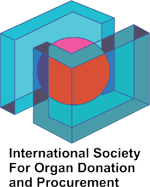
The ISODP's leadership continues to discuss implementation strategies for the association's strategic plan developed to focus and promote its aims and objectives. The main areas of engagement include:
- Increase donation internationally by establishing a process to engage in continuous improvement in donation and plan congresses and meetings to increase donation globally;
- Enhance available resources to improve donation practices by using shared information and creating meaningful associations; and,
- Establish an integrated network of donation professionals to align with other organizations and associations and enhance the ISODP membership.
Günter Kirste and Kimberly Young deserve special recognition for formulating the strategic plan.
In 2010, the ISODP and TTS, with the collaboration of Astellas, launched the Transplant Coordinators Scholarships in order to enhance international training opportunities. Several scholarships have been awarded and a second round of reviews are in the final stages and will be announced at the TTS Congress in Berlin.
The Australian DonateLife Network and The Transplantation Society of Australia and New Zealand (TSANZ) look forward to hosting everyone in Sydney on November 21-24, 2013 for the 12th Congress of the International Society of Organ Donation and Procurement. ISODP wishes Dr. Jeremy Chapman and his team success in the planning and execution of this congress.

Contact
+1-514-874-1717
This email address is being protected from spambots. You need JavaScript enabled to view it.
Address
The Transplantation Society
International Headquarters
505 Boulevard René-Lévesque Ouest
Suite 1401
Montréal, QC, H2Z 1Y7
Canada

